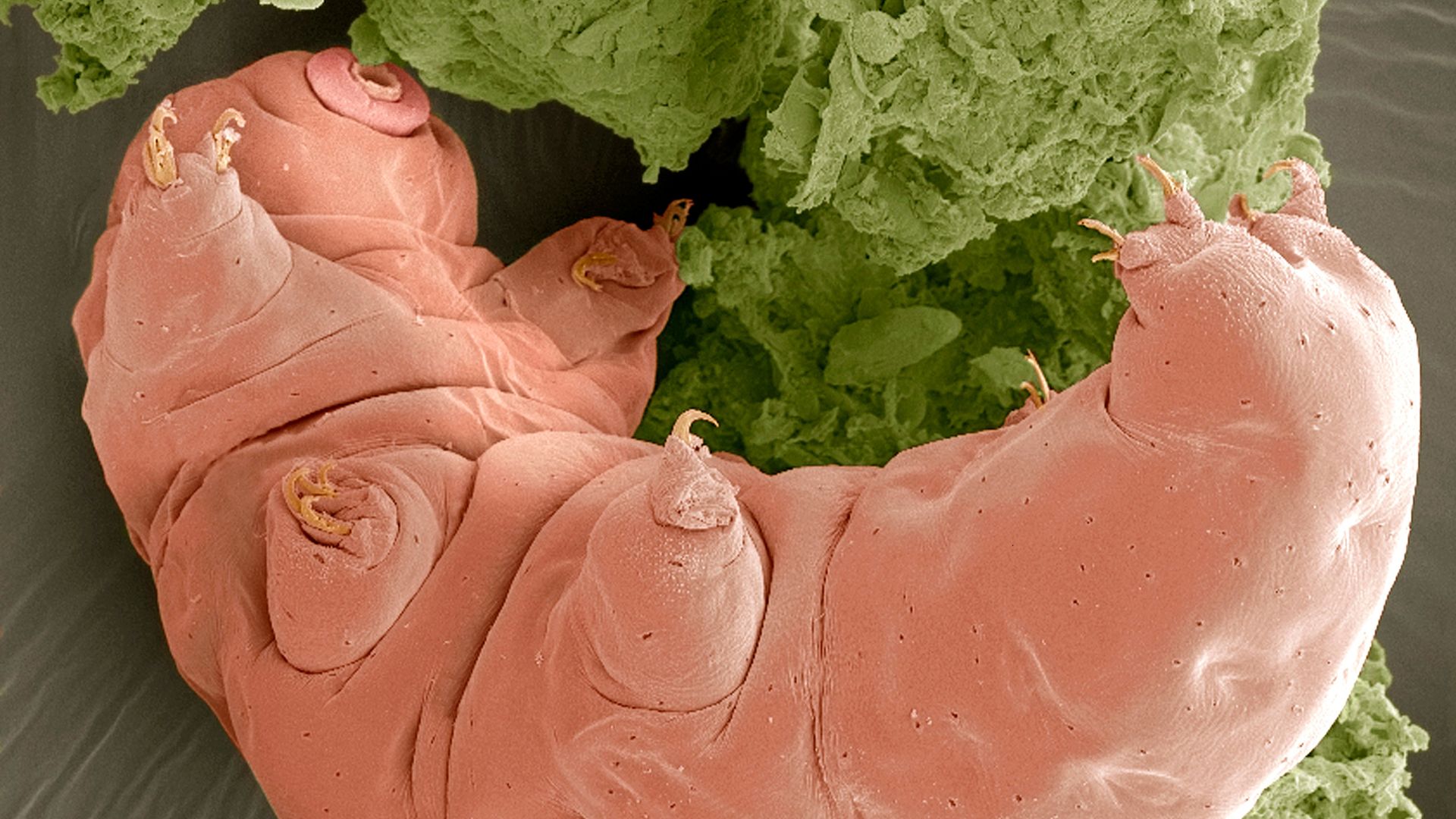Tardigrade proteins could help stabilize drugs without refrigeration, scientists say
Proteins found in tardigrades could be used to stabilize drugs that would otherwise need refrigeration.

Get the world’s most fascinating discoveries delivered straight to your inbox.
You are now subscribed
Your newsletter sign-up was successful
Want to add more newsletters?

Delivered Daily
Daily Newsletter
Sign up for the latest discoveries, groundbreaking research and fascinating breakthroughs that impact you and the wider world direct to your inbox.

Once a week
Life's Little Mysteries
Feed your curiosity with an exclusive mystery every week, solved with science and delivered direct to your inbox before it's seen anywhere else.

Once a week
How It Works
Sign up to our free science & technology newsletter for your weekly fix of fascinating articles, quick quizzes, amazing images, and more

Delivered daily
Space.com Newsletter
Breaking space news, the latest updates on rocket launches, skywatching events and more!

Once a month
Watch This Space
Sign up to our monthly entertainment newsletter to keep up with all our coverage of the latest sci-fi and space movies, tv shows, games and books.

Once a week
Night Sky This Week
Discover this week's must-see night sky events, moon phases, and stunning astrophotos. Sign up for our skywatching newsletter and explore the universe with us!
Join the club
Get full access to premium articles, exclusive features and a growing list of member rewards.
Tardigrades — those darling, near-microscopic critters that are nearly indestructible — carry proteins that could keep critical drugs and medical treatments stable without refrigeration, scientists say.
In a study published Monday (March 20) in the journal Scientific Reports, scientists tested this idea with human blood clotting factor VIII, a protein used to treat an inherited bleeding disorder called hemophilia A. Due to a genetic mutation, people with this disorder don't make enough factor VIII and their blood can't clot properly. People with hemophilia A bleed spontaneously, and bleed excessively after injury or surgery.
Treating hemophilia A usually involves injecting factor VIII into the body, to make up for the patient's deficiency. Many factor VIII products require refrigeration, and those that don't can typically be kept at room temperature for only a limited amount of time and within a narrow temperature range.
Tardigrades, on the other hand, have a remarkable ability called anhydrobiosis, where they essentially dry themselves out and enter a state of suspended animation. In this state, the so-called water bears can withstand temperatures as low as minus 328 degrees Fahrenheit (minus 200 degrees Celsius) and as high as 300 F (148.9 C).
Related: Tardigrades survive being dried out thanks to proteins found in no other animals on Earth
The study authors wanted to see if the tardigrade's remarkable resilience could be carried over to medical treatments.
"Our work provides a proof of principle that we can stabilize Factor VIII, and likely many other pharmaceuticals, in a stable, dry state at room or even elevated temperatures using proteins from tardigrades," senior study author Thomas Boothby, an assistant professor of molecular biology at the University of Wyoming, said in a statement. "And, thus, provide critical live-saving medicine to everyone everywhere."
Get the world’s most fascinating discoveries delivered straight to your inbox.
The team drew two substances from the tardigrade Hypsibius exemplaris: a sugar called trehalose and a protein called cytoplasmic abundant heat soluble (CAHS) D. Both substances help preserve the tardigrades' bodies during anhydrobiosis so that they survive to be "rehydrated" later on.
The team tweaked both substances' biophysical properties to boost their ability to stabilize factor VIII. They then used the substances to store factor VIII without refrigeration and under unfavorable conditions, such as repeated dehydration and rehydration, extreme heat and long-term dry storage. Both compounds worked, but CAHS D worked better than trehalose, the team noted.
The authors think this approach could potentially be used for other medicines that currently require refrigeration. But we're still in the early days of this research.
"This will not only be beneficial for global health initiatives in remote or developing parts of the world, but also for fostering a safe and productive space economy which will be reliant on new technologies that break our dependance on the cold-chain for the storage of medicine, food, and other biomolecules," the authors wrote.

Nicoletta Lanese is the health channel editor at Live Science and was previously a news editor and staff writer at the site. She holds a graduate certificate in science communication from UC Santa Cruz and degrees in neuroscience and dance from the University of Florida. Her work has appeared in The Scientist, Science News, the Mercury News, Mongabay and Stanford Medicine Magazine, among other outlets. Based in NYC, she also remains heavily involved in dance and performs in local choreographers' work.
 Live Science Plus
Live Science Plus










